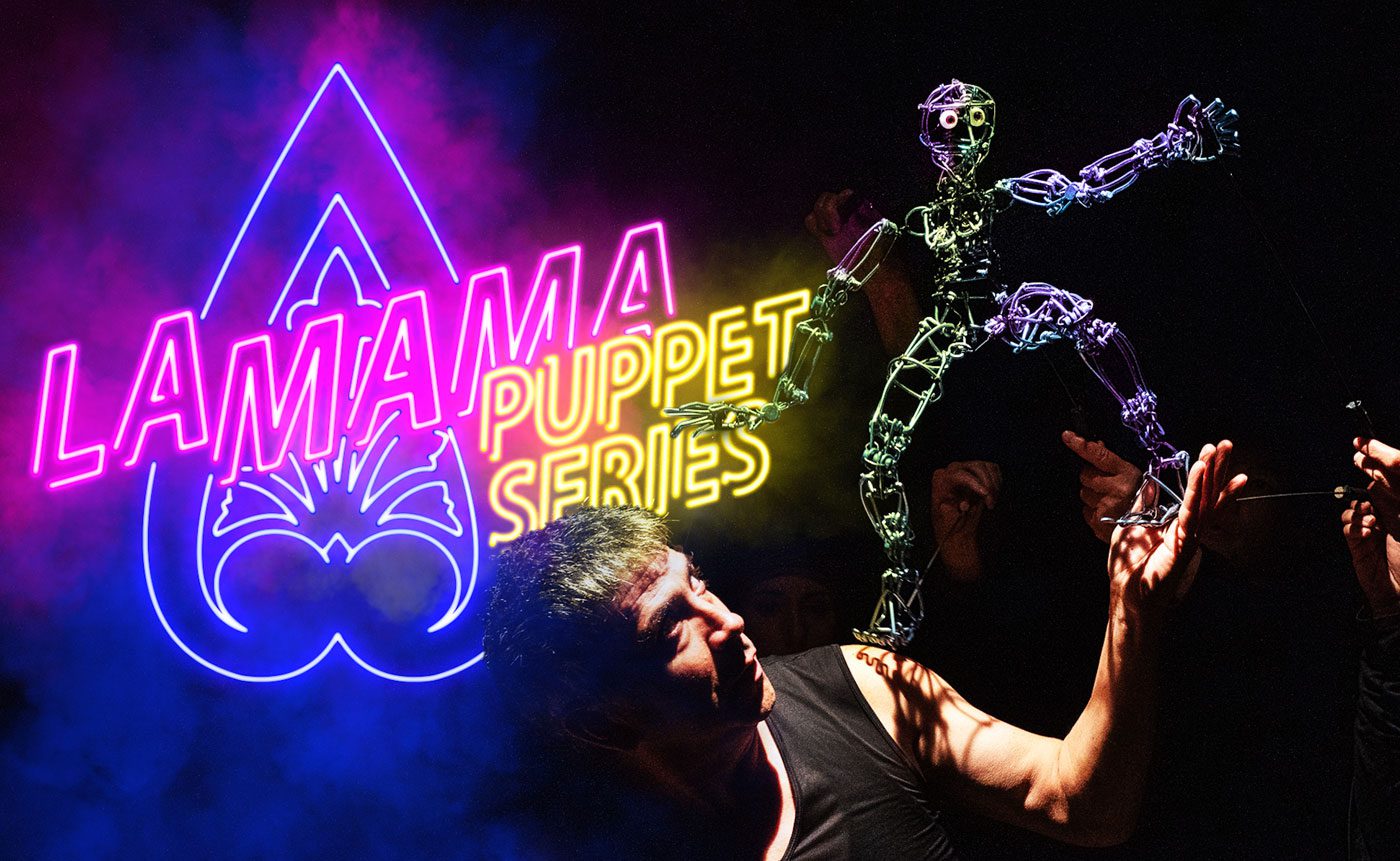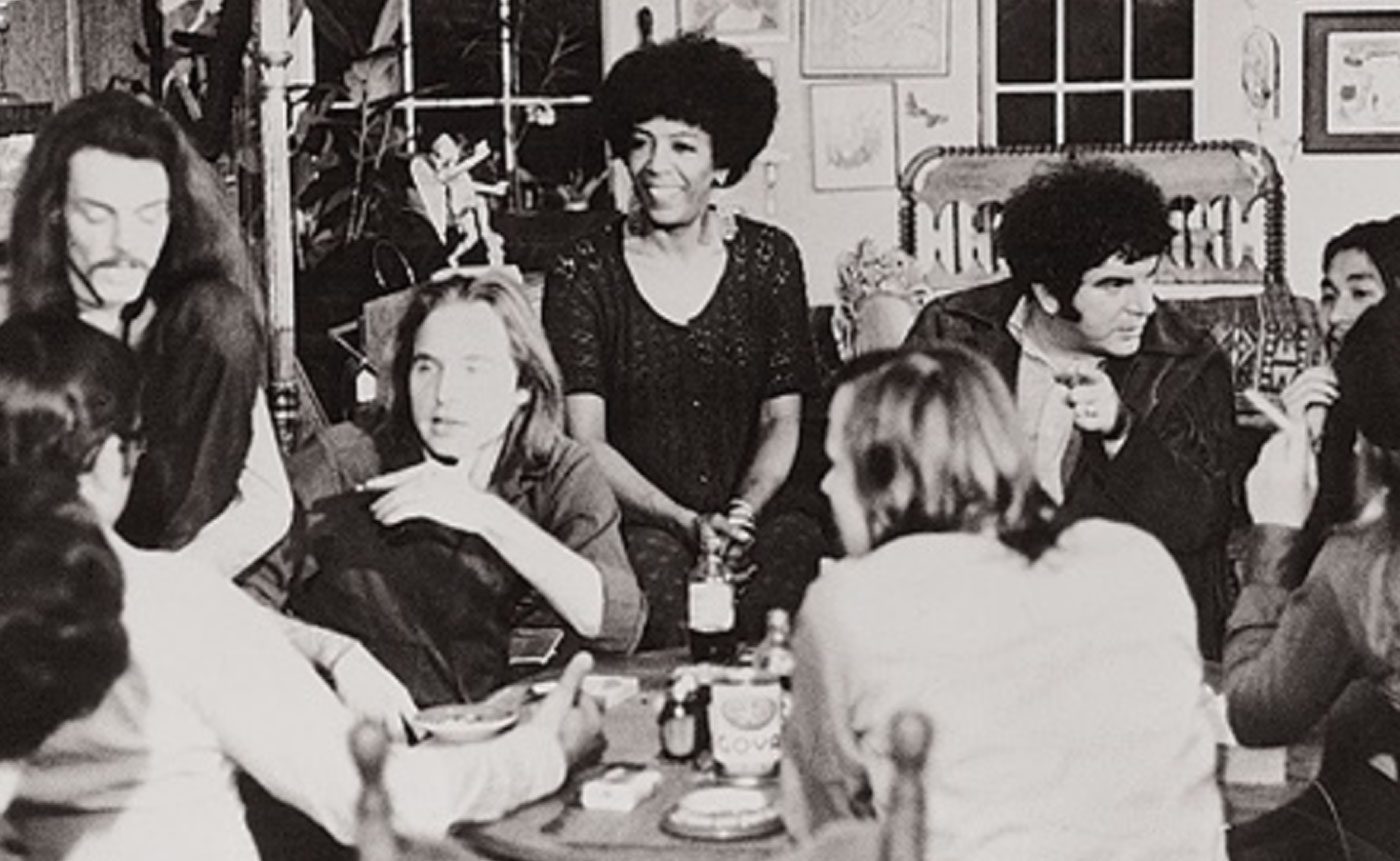
La MaMa Archive
“It is impossible to exaggerate how crucial the [La MaMa] archive is to the stories of American theatre, New York City, and innumerable facets of creative culture and the wider social currents this work traced and fomented.”
–Alisa Solomon, Theatre Scholar and Author
About La MaMa Archive
Established in the early 1970’s, La MaMa Archive collects, preserves, and exhibits records of permanent historical value relating to La MaMa and the Off-Off Broadway movement. In doing so, it draws on a deep vein of in-house institutional memory, the passionate community of artists whose work has found a home on La MaMa stages, and a diversity of scholars, educators and international artists with whom we regularly collaborate.
La MaMa’s collections offer an intimate perspective on major social, aesthetic, and political movements of the 20th and 21st centuries that resonate with histories of peoples across the globe. Where else would you find original plays by Vietnam War veterans alongside video of performances about the AIDS crisis; unpublished scripts by Japanese filmmaker Shuji Terayama alongside photos and correspondence by Polish revolutionary director Tadeusz Kantor? A significant portion of these materials are available for viewing on our Digital Collections website, catalog.lamama.org.
The Ellen Stewart Private Collection
Head Archivist / Director of Digital Collections: Kylie Goetz
Mission Statement
La MaMa Archive is dedicated to supporting the work of La MaMa ETC and to promoting inquiry into the history of off-off-Broadway theater. La MaMa Archive collects, preserves, interprets, and exhibits records of permanent historical value relating to La MaMa ETC, and endeavors to make its collections accessible and meaningful to the broadest possible audience.
Collecting Policy
La MaMa Archive collects material related to the work of La MaMa Experimental Theater Club, its founder Ellen Stewart, and its contributing artists. The bulk of the archive consists of materials that were created in the normal course of the theater’s business. The Archive almost never accepts outside archival donations; in the rare situations that we do accept donations, we require that donors agree to transfer both physical ownership of the materials and copyright to La MaMa. Our records are mostly in English, with other languages (Japanese, German, Dutch, Spanish, French, and Chinese, among others) scattered throughout. Formats include paper, film, video, photographic materials, electronic media, papier mache, fabric, and wood.
Schedule an Archive Tour
La MaMa Archive regularly conducts tours for student, community and arts groups and is open to the public Monday through Friday from 12pm-4pm BY APPOINTMENT. For more information please contact the Archive at 212-260-2471 or email archives@lamama.org
La MaMa Archive 2024–2025 is supported, in part, by public funds from the New York City Department of Cultural Affairs in partnership with the City Council and the New York State Council on the Arts with the support of the Office of the Governor and the New York State Legislature. Additional support provided by The Gladys Krieble Delmas Foundation, the Howard Gilman Foundation, and The Shubert Foundation.





La MaMa Archive Conservation Projectis supported in part by a Federal National Park Service Grant Save America’s Treasures grant, made possible by the Institute of Museum and Library Services.

La MaMa Archive Digitization Project, “Preserving Off-Off-Broadway: Expanding Access to La MaMa’s Paper and Photographic Materials”, is supported in part by a National Historical Publications & Records Commission grant, affiliated with the National Archives and Records Administration.

Digitization of production footage is supported in part by a grant from the Council on Library and Information Resources Recordings at Risk program.

La MaMa Archive Climate Control Project, “Preserving Off-Off-Broadway: Designing Improved Climate Control for the La MaMa Archive” is supported in part by an Infrastructure and Capacity Building grant from National Endowment for the Humanities.

Use and Access Policy
La MaMa Archive endeavors to provide broad access to its collections for study, research, teaching, and learning. We welcome use of materials from our collection that are in the public domain and fair use of copyrighted materials as defined by copyright law. Please cite us when you use materials from our collections.
In making its digital and physical collections available, La MaMa Archive reserves the right to restrict the use of rare and valuable items; to limit the number of copies made on behalf of researchers; and to deny a request because of copyright regulations, privacy rights, donor-imposed regulations, or other rights related issues.
Permission to examine material from our collections is not an authorization to publish. While La MaMa owns the physical materials in our collections, we do not always own the copyright to these materials. If La MaMa does not hold the copyright to an item, we cannot grant or deny permission to use that material. Users are solely responsible for determining the copyright status of materials and obtaining permission to use material from the copyright holder. Users are also responsible for addressing issues of privacy and publicity rights relating to use of our materials.
Permission for commercial use of materials for which La MaMa holds copyright is granted on a case-by-case basis at the sole discretion of La MaMa ETC.
If you use or reproduce our materials in any format, we ask that you properly cite and credit La MaMa Archive as the source of the material, in addition to crediting the author or creator of the materials. We ask that you send us a copy of any published work that features our material.
If you have information about an item on our website or if you are the copyright owner and believe La MaMa has not properly attributed your work to you or has used it without permission, we want to hear from you. Please contact archives@lamama.org with your contact information and a link to the relevant content.
Disclaimer: Users agree to defend, indemnify and hold harmless La MaMa Archive and its employees and representatives against all liabilities, losses, demand, penalties, costs, expenses, attorneys’ fees, lawsuits, fines, judgments, or causes of actions, including but not limited to claims relating to infringement of copyright, trademark, invasion of rights of privacy or publicity, or libel that arise either directly or indirectly from any use by the requestor of the images and/or materials provided by La MaMa ETC.
Browse The La MaMa Archive: Digital Collection
The La MaMa Archive Digital Collections database is both a catalog and a digital archive, and it was designed to serve both researchers and general users. Site users can conduct targeted searches or browse at will, using the images and text available on this site as a guide. In the near future, we hope also to be able to offer curated digital exhibits.
CLICK HERE to browse the La MaMa Archive Digital Collection!
The digital collections share material from La MaMa’s earliest years, what we call our Pushcart Era (1961-1985), and beyond. We continue working to make more and more of our collection accessible through our catalog. Not everything has been digitized, so you may not be able to find a digital representation of every resource in which you are interested. We are constantly adding to our digital collections. So far, we’ve added more than four decades of production records! So keep checking back for updates, to browse new materials, or to reach out with research questions.
Read Cataloging La MaMa’s Pushcart Years and Beyond
Read news about La MaMa’s cataloging efforts. What started as a two-year long project, funded by CLIR’s Hidden Collections program, has resulted in an online, searchable catalog of our archival materials and a digital collections portal. New material is being added regularly. Check out the blog, where we’ll highlight particular items and artists.
You may also like
La MaMa Puppet Festival
La MaMa Moves! Dance Festival continues to support La MaMa’s commitment to presenting diverse perf
Coffeehouse Chronicles
Tellus integer feugiat scelerisque varius. Sit amet volutpat consequat mauris nunc congue nisi. At u
La MaMa Kids
Fun for the whole family!STORYTELLING, MUSIC-MAKING, PUPPET CRAFT, MASK-MAKING, AND MORE!











